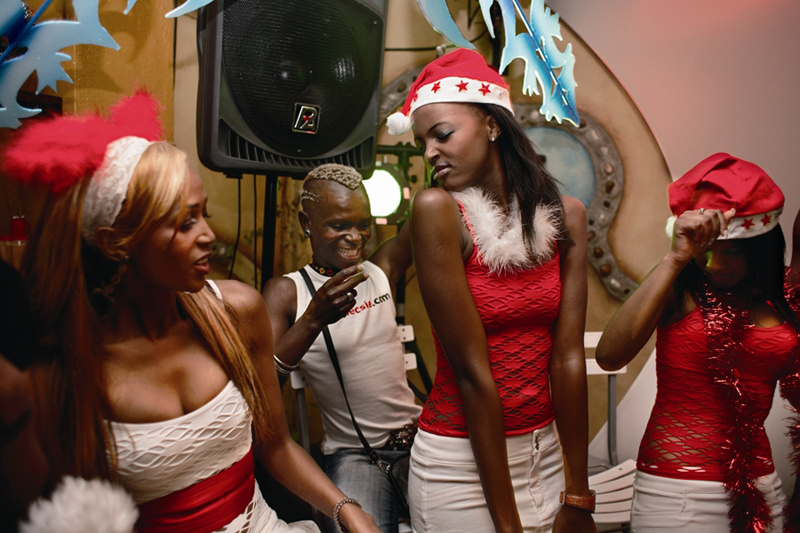| Jürgen Schadeberg | Tales from Jozi |
Galerie Peter Herrmann |
 |
Xmas Girls Johannesburg Foreword by Jurgen Schadeberg When I arrived in Johannesburg in 1950 the City was 64 years old and some of its inhabitants remembered its creation when satellite towns sprung up alongside a deep gold reef which stretched for miles. Joburg reminded me of a Colonial City where newspaper focused on the activities of the British Royal Family with headlines such as “Prince Charles takes his first steps”, and where cinema film screenings were preceded by “God Save the King” . There were Tea Bioscopes where you sipped Cylon tea while watching continuous film classics such as Buster Keaton, Charlie Chaplin and Laurel and Hardy. While Apartheid Laws meant that Joburg was predominantly a City for white people the sound of African Jazz filtered and groups of pennywhistlers and jazz guitarists often played at street corners and in front of the City Hall. As with any young City the changes were rapid and, in the name of progress, old buildings were pulled down to give way to modern high rise blocks. The City took on the look and atmosphere of any new American City with its skyscrapers and neon lights. Over the years, and accelerated by the end of Apartheid, Jozi has slowly transformed into an African City with its continuous influx of South Africans and people from the African continent who converge on the City of Gold seeking their fortune. For some years I have felt the need to record these changes. Over a year ago I was approached by Stuart Wilson, from the Centre for Applied Legal Studies at Wits University, who was defending the eviction of inner city dwellers. He needed photographic documentation of his clients’ living conditions for the various court cases. I saw Stuart as a type of Robin Hood figure, a lone crusader defending the poor and homeless against the establishment which, despite the urban casualties, was intent on sanitizing the City for 2010. The Centre for Applied Legal Studies succeeded in getting support for this project from The Norwegian Centre for Human Rights based at the University of Oslo. The aim of the project is to give an impression of the great contrasts within Jozi today. While Joburg has the potential of becoming a world class African City which has successfully discarded its Colonial roots the urban poor are in danger of becoming its voiceless victims. |